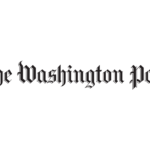Primer—North Korea, South Korea, and the United States: Reading between the lines of the Cheonan attack
By Leon V. Sigal | September 1, 2010
On March 26, 2010, North Korea attacked the South Korean vessel
Cheonan, killing 46 people and making it one of the deadliest
encounters in Korea in recent years. This attack followed a year of mounting
tensions in which Pyongyang tested the first stage of a long-range missile in
the guise of putting a satellite into orbit and then conducted its second
underground nuclear test. Following the attack, the Obama administration backed
South Korea’s decision to punish North Korea with tough trade
sanctions. The author writes that this was not necessarily a wise move, as
punitive measures, however justifiable, will be met tit-for-tat by North Korea.
Pyongyang reacted to the July 2006 U.N. Security Council sanctions for its
missile tests, the author writes, by conducting a nuclear test; its response to
tougher U.N. sanctions in June 2009 for its second nuclear test was to reprocess
more plutonium. The author looks at recent interactions, discussions, and
disputes among North Korea, South Korea, and the United States, and writes that
the only way to make the waters off Korea safer and to stop further nuclear
proliferation is to resume the Six-Party Talks soon, negotiate in earnest, and
start a parallel peace process for the Korea.
Together, we make the world safer.
The Bulletin elevates expert voices above the noise. But as an independent nonprofit organization, our operations depend on the support of readers like you. Help us continue to deliver quality journalism that holds leaders accountable. Your support of our work at any level is important. In return, we promise our coverage will be understandable, influential, vigilant, solution-oriented, and fair-minded. Together we can make a difference.
Issue: Bulletin of the Atomic Scientists Volume 66 Issue 5
Keywords: Cheonan, North Korea, South Korea, attack, history, primer, sanctions, six party talks
Topics: Uncategorized















